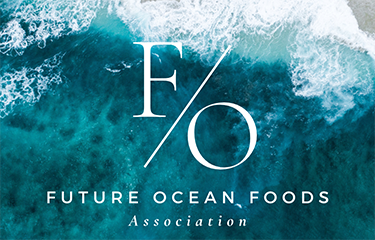SeafoodSource is closely following the plant-based and cell-based seafood alternatives market by compiling a regular round-up of updates from the sector.
-Future Oceans Foods (FOF), a global association designed to support and accelerate growth of the seafood alternatives industry, announced its formation on 13 November.
The Halifax, Nova Scotia, Canada-based coalition currently consists of 35 companies within the seafood analog sector across 14 countries.
“This is an incredible moment in time for the future of food and our oceans,” Future Ocean Foods Founder and Executive Director Marissa Bronfman said in a release. “Alternative seafood offers us the opportunity to build a more delicious, nutritious, sustainable, and ethical global food system. I am humbled and hugely excited to be working alongside these visionary founders and pioneering companies to revolutionize the seafood industry and am emboldened by the spirit of collaboration among our members. We all embrace the adage: a rising tide lifts all boats."
FOF aims to unite global stakeholders across the alternative seafood sector, allowing for collaboration and knowledge-sharing. It will also increase product trials and aim to deepen market penetration.
“Future Ocean Foods members are united in their mission to promote food security, human health, environmental sustainability and ocean conservation. Future Ocean Foods is dedicated to fostering diversity and inclusion, with 40 percent of its member base comprised of women founders,” FOF said in a statement.
- Plant-based seafood labels have been accused of deceit in Spain by Conxemar, a trade assocation representing the Spanish seafood industry.
Conxemar has called on the Spanish Ministry of Consumer Affairs to withdraw permission for the sale of plant-based seafood products using the names of fish on its labels, according to Veconomist.
The Spanish coalition denounced “fraud in the labeling and presentation of plant-based seafood products” and said the products do not comply with several national and European regulations, including fair competition practices, food product advertising laws, and food safety and nutrition rules.
- Singapore-based cell-cultured meat and seafood company Umami Meats has launched its FuturFish initiative, aiming to advance innovations in cell-cultured seafood. In Phase 1 of the FuturFish, project Umami Meats will develop a demonstration-scale product line, additional R&D facilities, and a test kitchen to support product co-development, including 3D printing of seafood analogs.
“We now have confirmed partnerships with multiple global leaders in the seafood, biomanufacturing and leading academic organizations to kickstart this platform. We look forward to many more startups and partners joining us in pursuit of this mission of building a sustainable future of seafood,” Umami Bioworks wrote in a LinkedIn release.
- Potsdam, Germany-based plant-based seafood company Ordinary Seafood announced the debut of its plant-based seafood products at Metro supermarket locations across Germany.
Ordinary Seafood’s Ordinary Tuna and Ordinary Smoky Salmon will be available at Metro locations in Cologne, Düsseldorf, Hamburg, Berlin, Munich, Frankfurt, and Stuttgart, according to the Vegconomist.
“We are committed to providing sustainable alternatives that not only protect our planet but also provide an unparalleled sensory experience backed by rigorous scientific research and cutting-edge technology," the company said.
Photo courtesy of Future Ocean Foods







